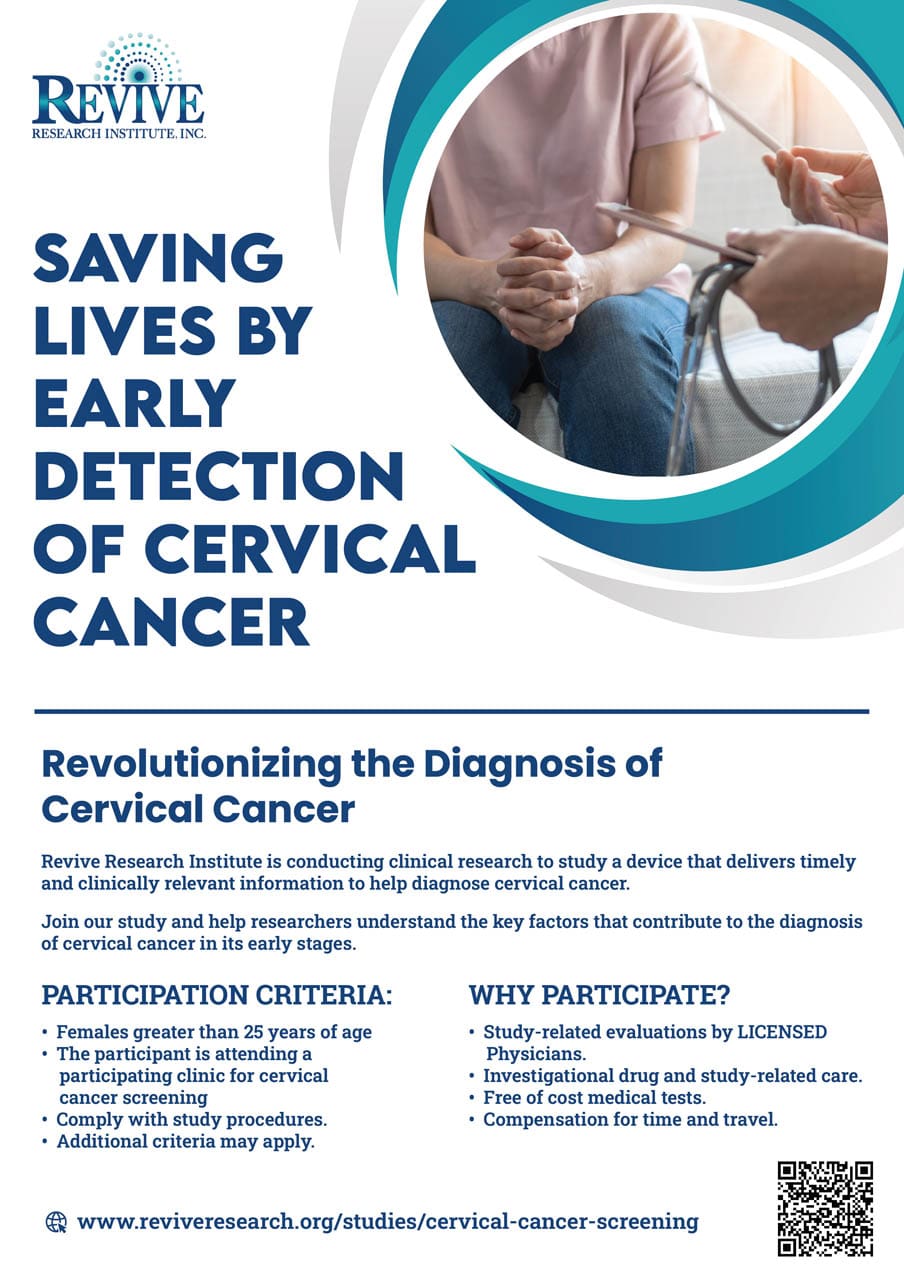Cervical Cancer Screening
HPV Can Happen To Anyone & If Not Kept In Check, Could Lead To Cervical Cancer
We’re enrolling women in a Screening HPV & Cervical Cancer Clinical Trials.
The human papillomavirus (HPV) is a group of viruses that can affect your skin and the body’s moist membranes, such as the cervix, anus, mouth, and throat.
For women, HPV Infection Testing is frequently included in Cervical Cancer treatments screening, which examines the cervix for abnormal cells (entrance to the womb). Cervical screening isn’t a cancer test; it’s a check on the health of the cervix’s cells. If the cells in your cervix change, it doesn’t always imply you have Cervical Cancer; in certain circumstances, the abnormal cells must be removed to prevent cancer from developing.
Revive Research Institute is conducting a Screening Clinical Research Trial where we study an investigational product that may be able to screen the cervix for any abnormalities like HPV that mat lead to cervical cancer.
Participation Criteria:
- Females above the age of 25 years
- Had a colposcopy referral in a routine cervical cancer screening
- Comply with the study procedures
The purpose of the investigational product is to detect high-risk human papillomavirus (HPV), a virus associated with high-risk cervical cancer. Join our Cervical Cancer Clinical Trials and let our experienced research staff including Gynecologists, and Nurses take care of you and your cervix health.


